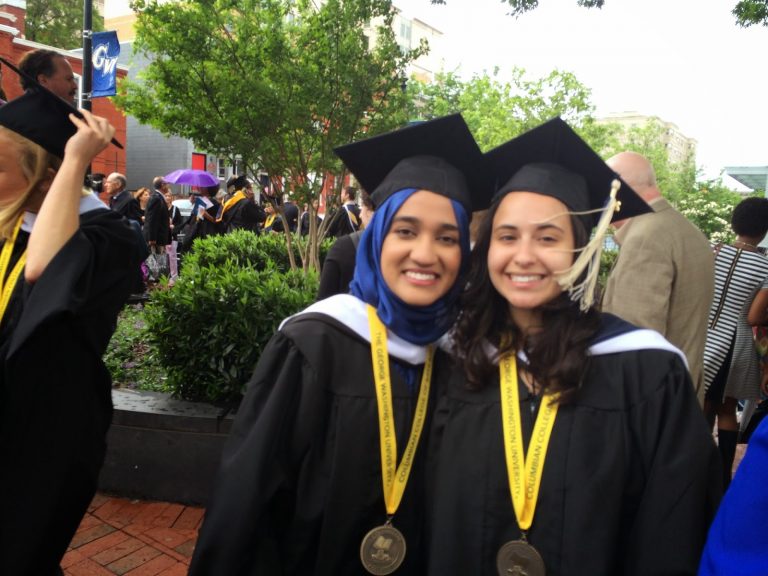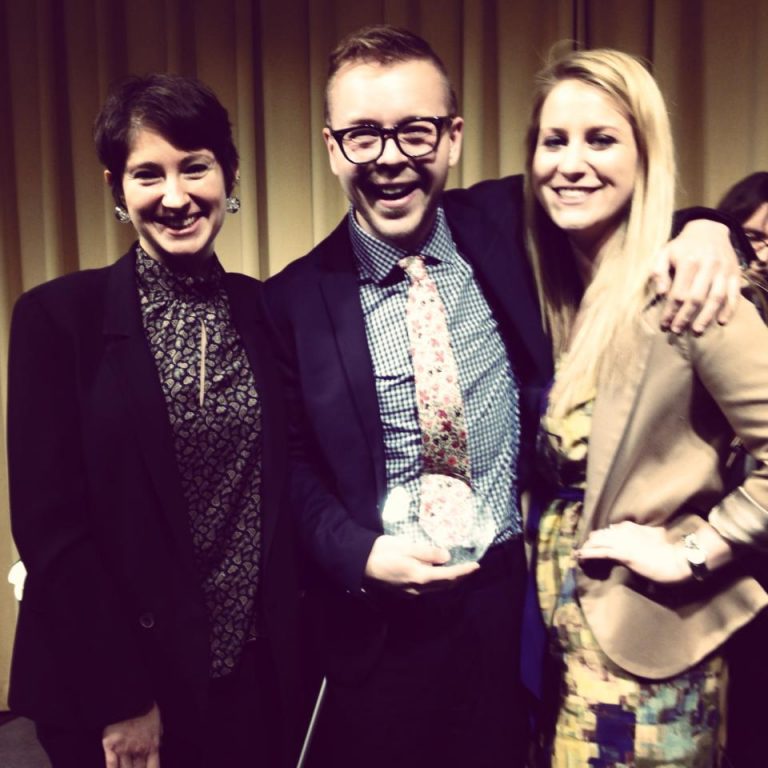Professors Mitchell and McRuer Receive Award for Outstanding Journal Reviewers
| The Journal of Literary and Cultural Disability Studies |

| The Journal of Literary and Cultural Disability Studies |

Congratulations to all members of the Class of 2014. This spring, GW English graduated 5 Ph.D. students, 5 M.A. students, and 84 B.A. students. We are proud of all of your hard work and your many accomplishments! Ph.D. students were “hooded” at a ceremony in the Smith Center on Thursday evening. The dark blue color…

GW English extends a hearty congratulations to Professor Renee Calarco, whose play, The Religion Thing, was nominated for a 2013 Helen Hayes Award! Professor Calarco is nominated in the category of Outstanding New Play or Musical. Since 1983, the Helen Hayes Awards have recognized professional theater in the Washington, D.C. region. They are named for…

Raising High & Waving Goodbye: Izzy Cassandra-Newsam graduates with a degree in Creative Writing & English, after completing her fiction thesis under the guidance of Professor Annie Liontas. After this summer, she will return to her native Los Angeles to pursue a career in television. Thank you, Izzy, for everything you’ve provided the department, and…

D. Gilson (center) with graduate students Maia Gil’Adi (left) and Rachel Obenschain (right) On Friday, PhD student D. Gilson won the Larry Neal Writers’ Competition in the poetry category. Each year, the DC Commission on the Arts and Humanities presents these awards to commemorate the artistic legacy and vision of cultural understanding of Larry Neal –…

Courtney Wang (BA, ’07), second from left Lieutenant Junior Grade Courtney Wang, US Navy, has been deployed to conduct counter piracy operations in the Gulf of Aden and in the Somali Basin; her work as a Surface Warfare Officer has taught her how to drive and fight warships and has taken her all over the…

Professor and Deputy Chair of English Patricia Chu published her book Where I Have Never Been: Migration, Melancholia, and Memory in Asian American Narratives of Return (Temple, 2019) just last Fall! Her book provides valuable insight into the narratives of diasporic Asians, as their offspring travel to Asia to reclaim their heritage. Where I Have Never Been “reframes…